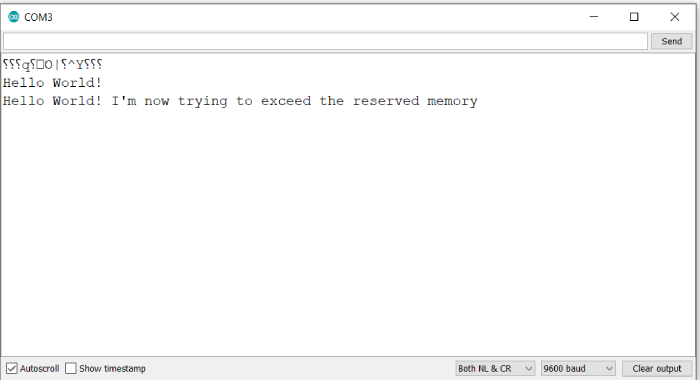
 Data Structure
Data Structure Networking
Networking RDBMS
RDBMS Operating System
Operating System Java
Java MS Excel
MS Excel iOS
iOS HTML
HTML CSS
CSS Android
Android Python
Python C Programming
C Programming C++
C++ C#
C# MongoDB
MongoDB MySQL
MySQL Javascript
Javascript PHP
PHP
- Selected Reading
- UPSC IAS Exams Notes
- Developer's Best Practices
- Questions and Answers
- Effective Resume Writing
- HR Interview Questions
- Computer Glossary
- Who is Who
Reserve memory in Arduino for string manipulation
It may happen that a string may change length dynamically during the execution of a program.
If you want to ensure that there is always enough memory available for your string, you can reserve some memory using the reserve() function.
Syntax
String1.reserve(n_bytes);
Where String1 is the string for which you are reserving memory, and n_bytes (unsigned int) is the number of bytes to be reserved in the memory.
Example
String s1 = "Hello";
void setup() {
// put your setup code here, to run once:
Serial.begin(9600);
Serial.println();
s1.reserve(20);
s1 = s1+" World!";
Serial.println(s1);
s1 = s1+" I'm now trying to exceed the reserved memory";
Serial.println(s1);
}
void loop() {
// put your main code here, to run repeatedly:
}
Output
The Serial Monitor output is shown below −

As you can see, even though we exceeded the reserved memory, there were no repercussions, because there was enough memory available. This function only helps set aside some memory for the string, so that we don’t face a shortage at runtime, especially in the execution of heavy codes.

Advertisements
